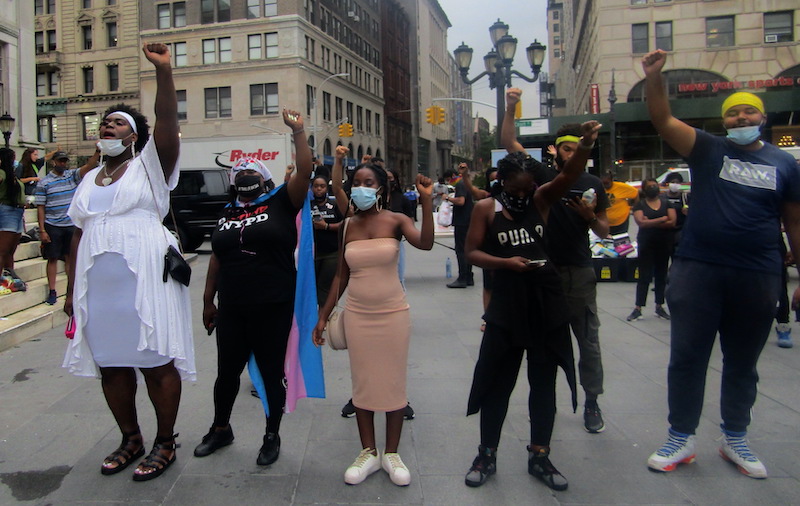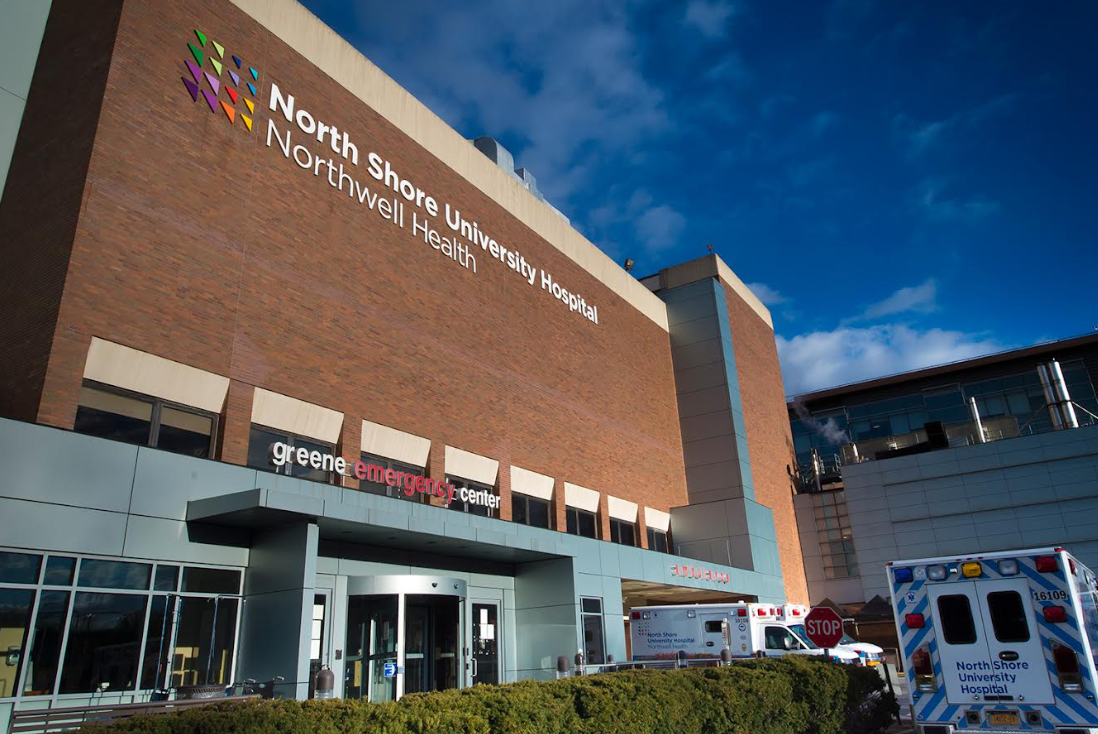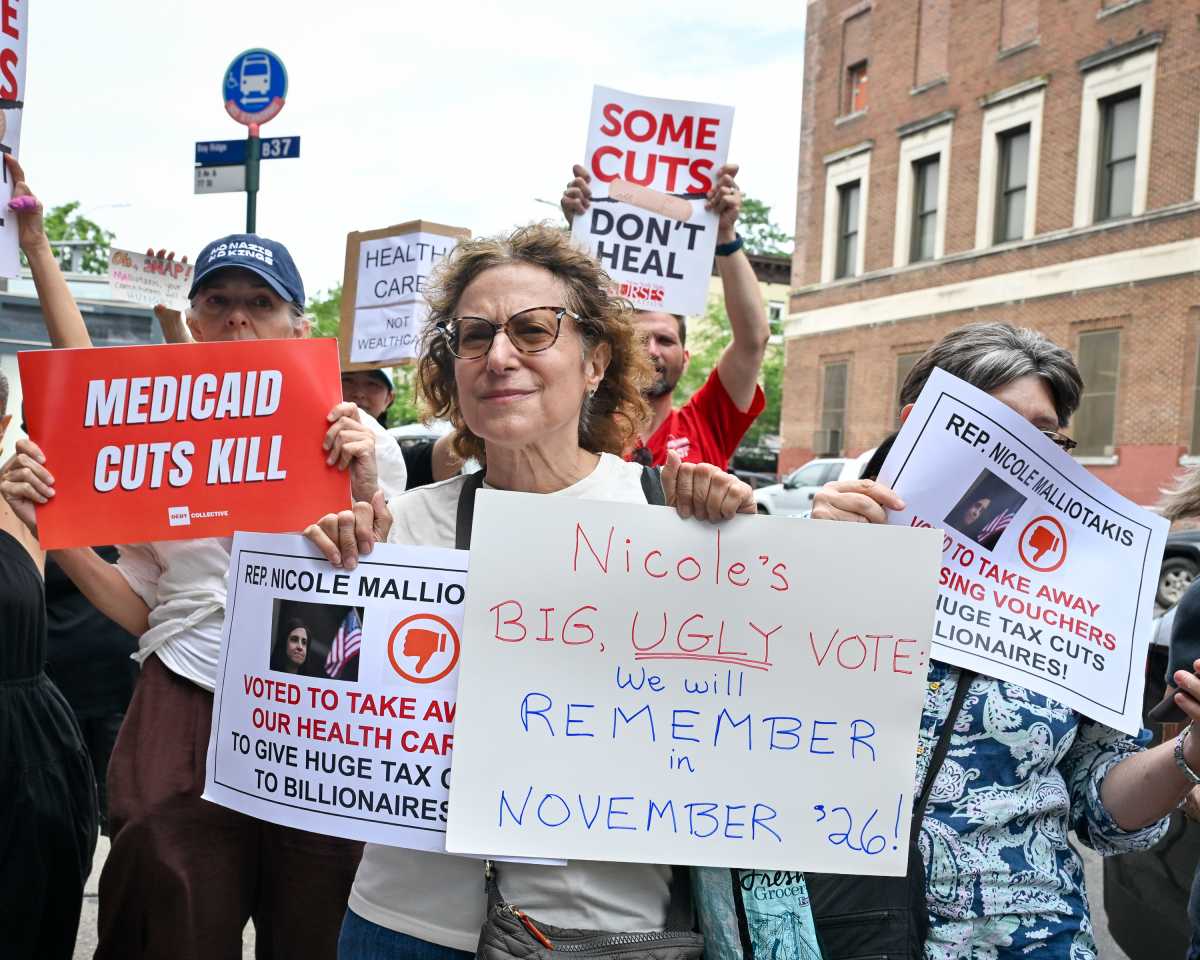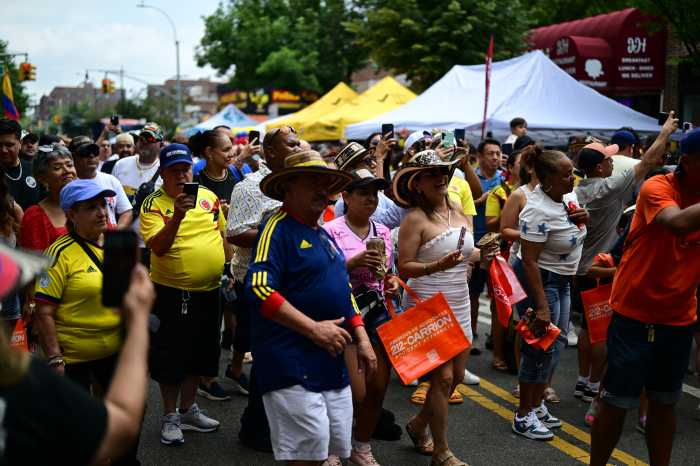Brooklyn Borough President Eric Adams and Deputy Public Advocate of Civic and Community Empowerment Xamayla D. Rose, and Brooklyn Borough President Eric Adams last Thursday celebrated Black Women’s Equal Pay Acknowledgement Day with a host of advocates.
Among those Somalia-Rose Muhammad, who runs Save Our Sisters NY, a Black female empowerment nonprofit founded by her and her sister. The organization held a rally, feminine product drive, food giveaway, and march from the plaza of Brooklyn Borough Hall to the Brooklyn Bridge with the support of other LGBTQIA+ speakers, Her Village Inc and the Department of Education (DOE).
Volunteers from Musicians United New York kicked off the celebration with familiar jams to ready the crowd as they filed into the plaza square.
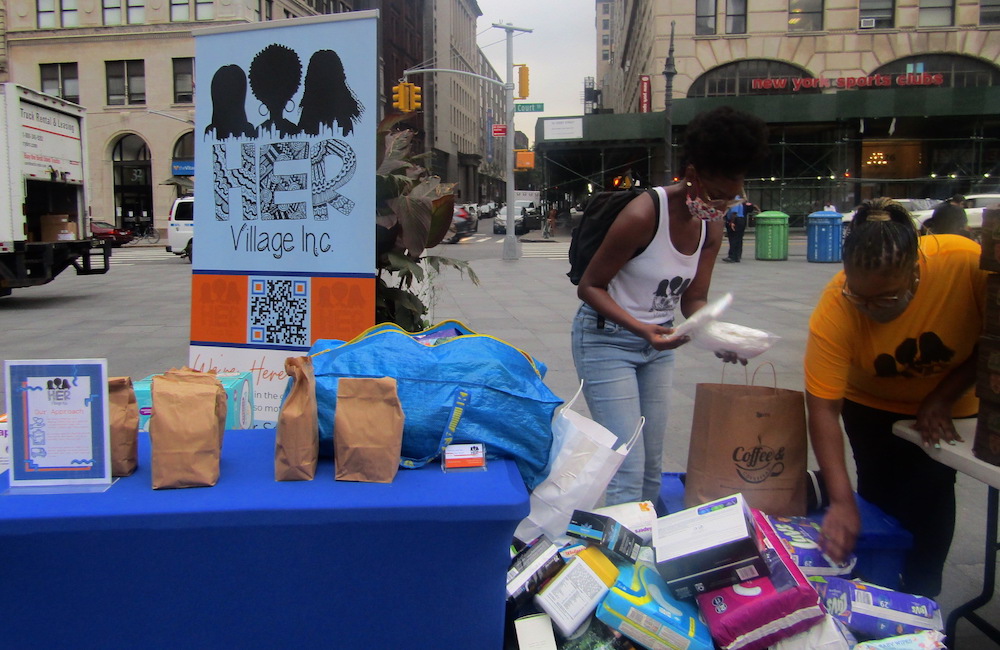
On the one end, Her Village Inc. Founder Chantal Alison-Konteh and board member Najee Johnson, gathered supplies for their diaper and menstruation pad bank, which provides an average of 200 families a month with necessary supplies, she said.
Next to their tables, fresh food and meal donations were handed out to attendees free of charge. Community Coordinator for the DOE Rainier Rickards said that the restaurant Tacombi often donates at least 150 taco meals weekly to community events in need.
The rally’s riotous speakers and performances highlighted the economic, educational, and health disparities Black and transgender women face.
“That means a Black woman have to work a whole year and an extra eight months to make the same amount a white man makes, 62 cents to a white man’s dollar,” said Muhammad, speaking of pay inequality in her opening statements. “even more alarming than that, my Black trans sisters are having a hard time getting a job in the first place because of the stigma and discrimination.”
August 13 is the official celebration of Black Women’s Equal Pay, a movement meant to shed light on the glaring devaluing of an entire race and gender that is also considered the most educated in the U.S. The day is openly endorsed by politicians like Women’s Caucus Co-Chair Councilmember Farah N. Louis (D-Brooklyn).
Muhammad said that since she has a background in finance one of her organization’s goals is to teach financial literacy in schools.
Queen Jean and Bridges For Life Founder Tatiana Fermin hotly discussed the injustices of Breonna Taylor’s death and transgender women like 17-year-old Brayla Stone, the ‘Walking While Trans Ban,’ and showing up for sisters that are discarded “by a weak and fragile system.”
“It really feels like they’re trying to erase us. Like we don’t matter,” shouted Jean. “And I will not be erased.”
Jean, who identifies as she, said her Black trans sisters are being killed, living on average in other countries to the age of 35. According to Gay & Lesbian Alliance Against Defamation (GLAAD), the life expectancy of transgender women in the U.S is unknown.
Fermin, who just turned 38-years-old, said “Half of the population is literally homeless, living in the streets and train stations. Half of the population that is out here struggling age out from the foster care system.”
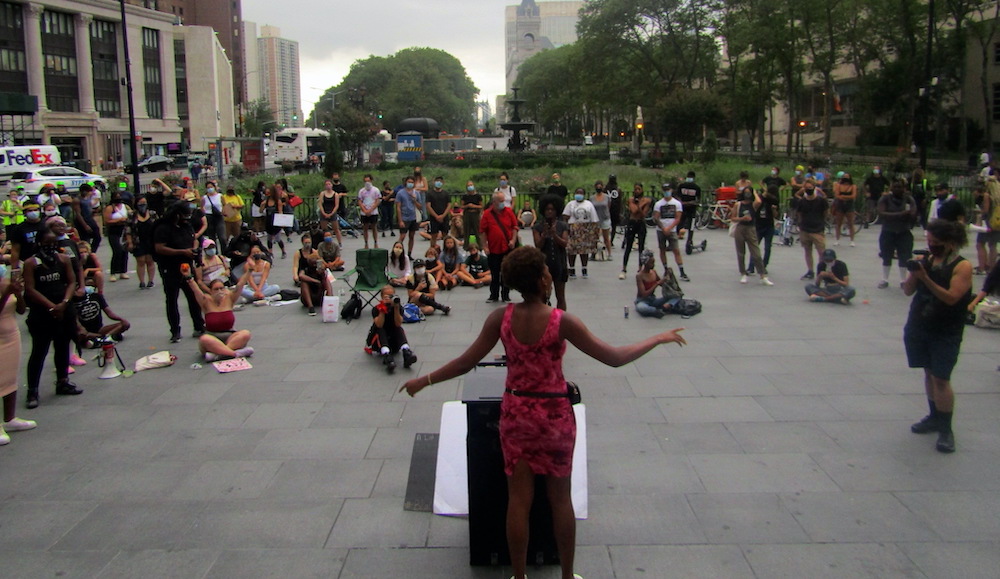
Fermin’s organization works with LGBTQIA+ children and adolescents, sex workers, and otherwise transient individuals who end up in the city’s foster care system. “No one speaks about this,” said Fermin.
Laboujienata D., who identifies as a Black queer trans fem person, spoke about the egregious offenses law enforcement makes against transgender people when they “deadname and misgender” them after death. This means, said D., that after being assaulted or killed their lives are disrespected even further by being referred to by their birth name and gender in a police report. The misclassification also makes it harder for friends and family to find their loved ones after death, said D.
Another prominent topic at the rally, affecting Black mothers specifically, were alarming death rates from giving birth or dying during pregnancy. In the U.S., Black mothers die at a rate that’s three to four times higher than white mothers, said NPR.
Genisha Metcalf, mother of two, said that during her second pregnancy she clearly told doctors and staff that she was going into labor and was not listened to. She was then rushed into the emergency room.
Rose, who’s a fierce advocate for Black maternal rights, said, “Oftentimes Black women have stressors. That we are in communities that are not supported. We are struggling at work and we are struggling at home.”
“People act like we’re invisible all the while calling us strong Black women,” she added.


